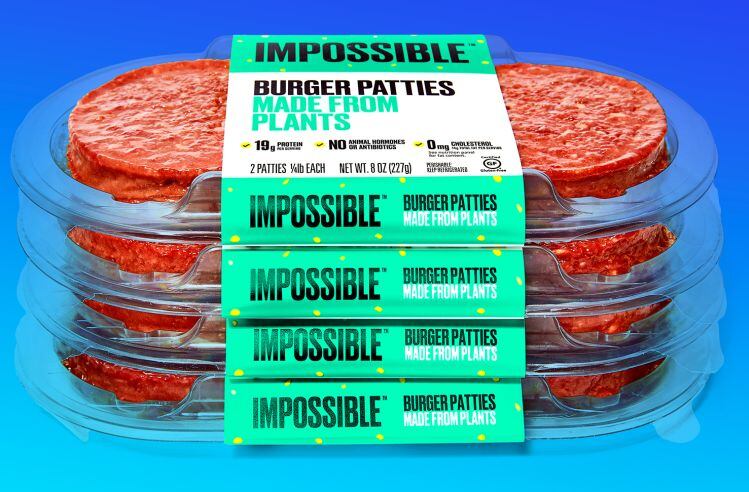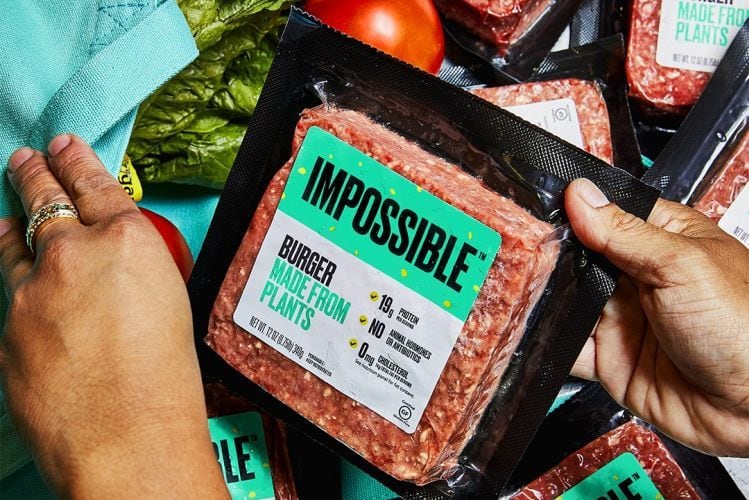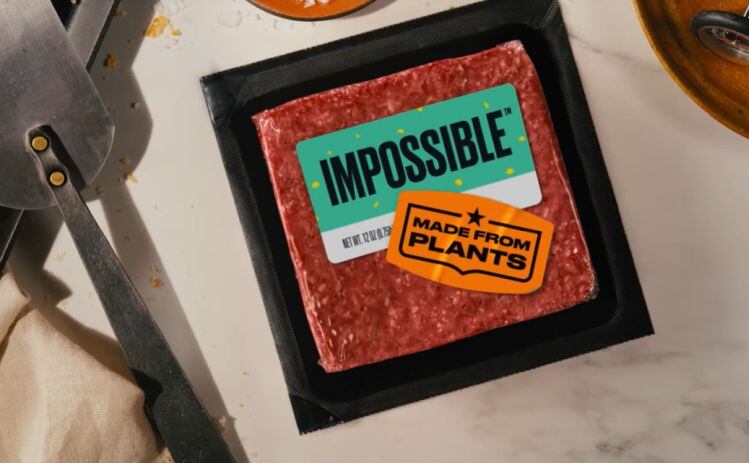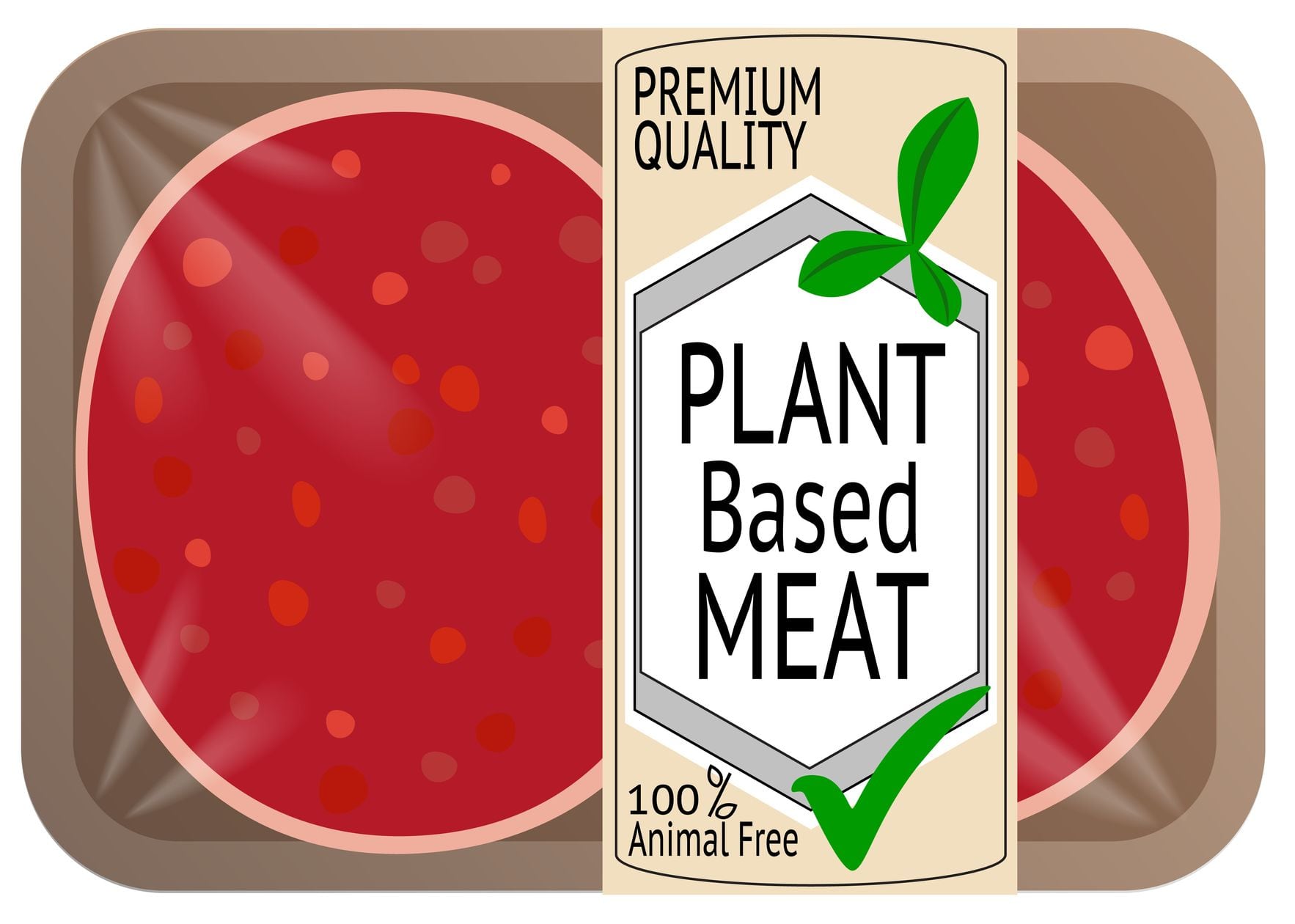Impossible Foods uses GM soy protein concentrate as its primary ingredient, while its flagship ingredient soy leghemoglobin - a protein that carries the iron-containing molecule ‘heme,’ which it says "makes meat taste uniquely like meat" - is produced by a genetically engineered yeast strain (P. pastoris), prompting pushback from anti-GMO activists and prompting some rivals (notably Beyond Meat) to make a virtue of their Non GMO credentials as the market heats up and brands seek to find points of difference that may resonate with some consumers.
After some significant back and forth (see box below) Impossible Foods received a letter from the FDA in 2018 confirming the agency had no additional questions to challenge the company’s determination that its soy leghemoglobin is generally recognized as safe (GRAS).
However, the FDA also noted that soy leghemoglobin could be considered a color additive in some applications, prompting Impossible Foods to file a color additive petition with the FDA in late 2018, which was approved in summer 2019 with the agency concluding “that there is a reasonable certainty of no harm from this use of soy leghemoglobin as a color additive.”
Ninth Circuit: ‘It is clear from reading the FDA’s decision as a whole that the FDA performed the appropriate analysis’
In early 2020, however, nonprofit the Center for Food Safety (CFS) filed a lawsuit arguing that the FDA had not applied the correct standards when assessing the petition, and that longer-term animal studies were needed to reassure the public of its safety.
In January 2021 court filings urging the Ninth Circuit to vacate the FDA's decision, the CFS argued that it is "not remotely clear what safety standard FDA applied in its review."
In an unpublished opinion filed this week (which does not set a legal precedent, meaning other courts can’t cite it), Circuit Judges Susan Pia Graber and Consuelo Maria Callahan begged to differ, and denied the CFS's petition.
They noted: “It is clear from reading the FDA’s decision as a whole that the FDA performed the appropriate analysis. Isolated instances in which the FDA phrased the safety standard differently do not establish that the agency used the wrong standard [eg. food additive rather than color additive rules]. Substantial evidence supports the FDA’s decision to approve soy leghemoglobin as a color additive.
“CFS’s contention that one study Impossible commissioned did not conform to the FDA’s ‘Redbook’ is unavailing… The FDA provided adequate justification for why it viewed that study as reliable despite its durational and size deviations from the Redbook guidelines.”
Diarmuid Fionntain O’Scannlain dissented without considering the merits, arguing that the CFS had failed to demonstrate an injury in fact and therefore lacked standing to make its case.
Impossible Foods: ‘Our products are among the most rigorously safety-tested and safety-verified in the history of the US FDA’
Rachel Konrad, chief communications officer Impossible Foods, applauded the court’s decision, adding: Safety is Impossible Foods' No. 1 priority. Our products are among the most rigorously safety-tested and safety-verified in the history of the US FDA; food-safety agencies in other countries have further validated our products' impeccable safety record.
“We applaud the court's decision to recognize and uphold the abundant evidence supporting the safety of our products and to slap down the meritless petition of the Center for Food Safety, an anti-science, anti-GMO activist group that's been spreading lies for years. "
In a blog post the company added: "CFS’ claim that stores are selling the Impossible Burger 'illegally' is an egregious, deliberate, cynical lie. Impossible Foods complies with all food-safety laws everywhere it’s sold and works with government bodies that regulate food. There is no evidence whatsoever of any health risks from the Impossible Burger — and in particular there is no evidence whatsoever of any health risks from heme."
CFS: ‘Avoid eating these GMO plant-based burgers…’
However, CFS senior attorney Sylvia Wu said the CFS would continue to urge consumers to “avoid eating these GMO plant-based burgers,” adding: "We are disappointed by the court's ruling today, which will allow Impossible Burger and other meatless burgers to be made with a novel genetically engineered chemical without conducting any long-term health studies.
“FDA is supposed to protect consumers from unsafe novel chemicals in our food supply, instead now consumers bear the burden of avoiding these GMO plant-based burgers."

A protein found in nodules attached to the roots of nitrogen-fixing plants such as soy that is similar to myoglobin and hemoglobin (which make blood look red), leghemoglobin is what "makes meat taste uniquely like meat," according to Impossible Foods, which produces it via a genetically engineered yeast – the DNA of which has been retooled to produce leghemoglobin.
The yeast feeds on sugar from plants and produces leghemoglobin with a fraction of the environment footprint of field-grown soy. Picture credit: Impossible Foods

The FDA asked Impossible Foods for more information when it reviewed the company’s first GRAS determination in 2015, noting that Impossible Foods' arguments did “not establish the safety of SLH for consumption, nor do they point to a general recognition of safety.”
As there is no history of widespread consumption of leghemoglobin from the roots of the soybean plant, said the FDA, Impossible Foods based its safety arguments on its structural and functional equivalence to other widely consumed globin proteins, arguing that heme B-containing globin proteins “have been safely consumed throughout human history.”
However, “Conformational similarity or functional similarity among proteins is not an indication of the safety of proteins for consumption,” claimed the agency, which also had questions about other proteins that might be expressed along with the soy leghemoglobin during the yeast fermentation.
Since that 2015 exchange, after which Impossible Foods withdrew its GRAS notice (GRN 540), it took significant steps to prove its heme is safe, and notified the FDA of a second GRAS determination (GRN 737) in October 2017.
While the original GRAS determination was based primarily on a literature review, the 2017 determination included results from two rat studies, plus various invitro tests including a chromosome aberration test on human lymphocytes (a genotoxicity test in cultured cells to assess whether leghemoglobin might be capable of causing chromosome damage or mutagenicity).
The company also voluntarily submitted its test data via two scientific articles to the peer-reviewed journals International Journal of Toxicology and Molecular Nutrition and Food Research.
This time, the FDA was satisfied, writing to the company in 2018 to say: “We have no questions at this time regarding Impossible Foods’ conclusion that soy leghemoglobin preparation is GRAS under its intended conditions of use to optimize flavor in ground beef analogue products intended to be cooked.”
In its 2019 approval of soy leghemoglobin as a color additive, the FDA said: "To establish that soy leghemoglobin is safe for use as a color additive that provides up to 0.8% soy leghemoglobin protein in ground beef analogue products, the petitioner used a weight-of-evidence approach based on:
(1) The history of consumption of soy, soy leghemoglobin protein, and P. pastoris;
(2) the safety of P. pastoris as a production strain;
(3) 14-day and 28-day feeding studies with soy leghemoglobin preparation in rats;
(4) mutagenicity and genotoxicity studies of soy leghemoglobin preparation;
and (5) an allergenicity assessment of soy leghemoglobin and P. pastoris proteins in the soy leghemoglobin preparation."
The feeding studies "did not show any toxicologically relevant effects," said the FDA, while "the mutagenicity and genotoxicity studies provided in the petition showed no evidence of mutagenic activity or increased chromosomal aberrations in cells exposed" to soy leghemoglobin.
As for allergenicity, it said: "Soy leghemoglobin and P. pastoris proteins in the soy leghemoglobin preparation are readily digested at acidic pH conditions found in the stomach and denatured at normal cooking temperatures. We agree with the petitioner that the totality of evidence supports the conclusion that soy leghemoglobin protein and P. pastoris proteins present in soy leghemoglobin preparation do not pose risks of allergenicity when consumed, even for people who are allergic to foods containing soybean protein."




